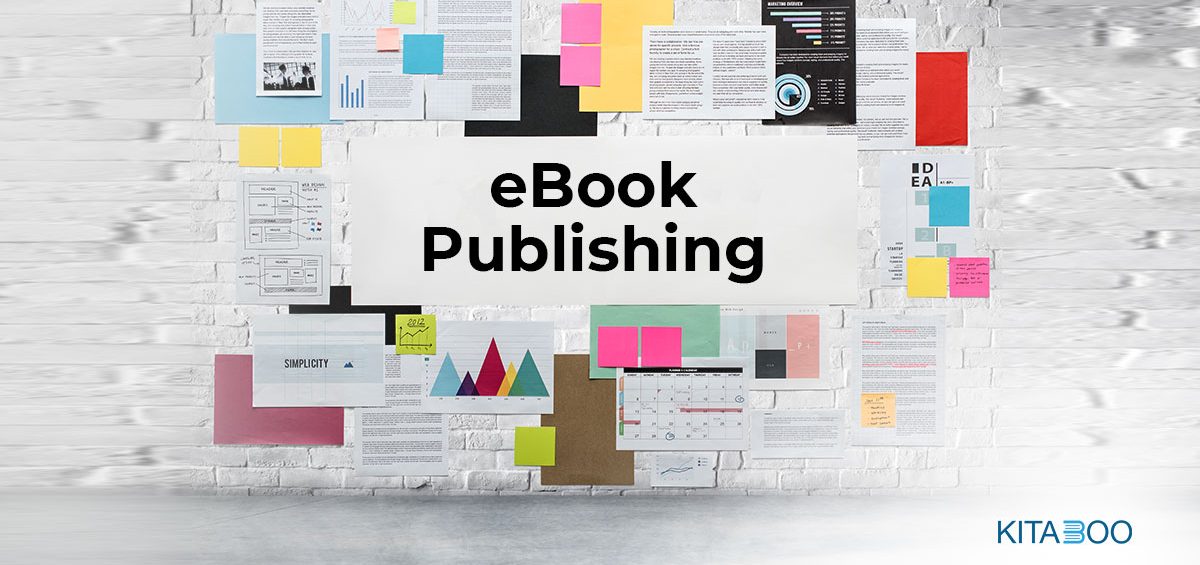Choosing the right eBook publishing platform is a crucial decision for any author. From your visibility and reach to the money involved, publishing platforms impact many aspects. So how do you decide which channel is right for you?
The right publishing platforms should help attract your readers’ attention through a captivating cover, interactive elements, etc. They should also provide you with tools to promote and publicize your book. A good platform combines these tools while delivering a powerful user interface and a highly customizable format.
If you’re still unsure which platform is the right fit for you, look at the eight must-consider factors below before choosing an eBook publishing platform.
Top 8 Factors to Look For in an E-book Publishing Platform
1. Compatibility with Different Devices
Readers today have multiple options in terms of devices, operating systems, and browsers. To reach out to as many audiences as possible, you should choose a publishing platform that is compatible with a maximum of these systems, if not all.
For instance, if your eBook looks excellent on a laptop but is not compatible with mobile devices, you will miss out on 3.5 billion active smartphone users. That is a huge number to forgo. Even with other users, most would like the flexibility to switch between devices and operating systems.
As an author, you must thus ensure compatibility with different formats and that your content can adjust to varying screen sizes. In addition, choosing platforms that allow readers to highlight sections, make notes, or read the book offline further enhances the user experience.
2. Easy User Interface
While choosing an eBook publishing platform, look for publishers that allow easy configuration and customization. This is especially important if you’re not familiar with back-end coding.
A user-friendly interface with easy-to-use design templates, icons, and drag-and-drop buttons, takes away the pain of publishing. It also spares you from the need to reach out to the tech support team every now and then.
Further, an easy-to-operate platform benefits not only you but also your readers. It allows you to experiment with different ideas and gives your readers a brand experience like no other.
Therefore, look for eBook publishing platforms that allow easy customizability without requiring you to code.
3. Supports All Content Types
eBooks nowadays are not just restricted to texts but also include multimedia elements such as images, videos, animations, audio, etc., to increase reader engagement. If your book consists of these interactive elements, you must choose a platform that supports them.
ePUB is perhaps the most widely used format for eBooks. Unlike text or PDF formats, ePUB supports interactivity, animation, and read-aloud features and works on a wide range of devices.
Further, ePUB also allows you to publish output in a reflowable format that fits all screen sizes. It may thus be the best choice to reach a wider audience. Other popular eBook formats include MOBI and AZW, used exclusively for kindle devices.
Formats compatible with iPhone, iPad, Mac, PC, and Android users: ePUB and PDF
Formats compatible with kindle devices: MOBI, AZW, PDF, KFX, KF8, etc.
So it’s best to determine your target audience and reach before choosing an eBook publishing platform that supports a particular format.
4. User Analytics
A publisher’s work does not end with publishing. Distributing and marketing are critical aspects to drive higher sales of your book.
This is why authors should choose platforms that provide data on book distribution as well as insights on reader response and behavior. These include real-time user engagement and behavior, average view time, viewing frequency, sources of traffic, best and worst performing components, etc.
Such analytics can help you strategize your sales and distribution and guide your marketing attempts. They will have a direct effect on your sales and turnover. Therefore, try to find a platform that provides inbuilt analytics and allows you to engage with your readers.
5. Digital Rights Management and Encryption Technology
While eBooks open publishers to a wider audience, they are also prone to higher security threats. Piracy, unauthorized use, leakage, and theft are common security concerns plaguing digital publishers.
Such threats can significantly affect sales and cause a huge loss of revenue. Hence, choosing an eBook publishing platform that offers digital rights management (DRM) is vital for authors to secure their work.
DRM locks your eBook with powerful encryption, making the content accessible to authorized users only. With this, your creative work becomes safe from piracy and illegal copy and distribution. So whatever your content format, choose a publishing platform that adds an additional layer of protection content through DRM and safeguards your revenue.
6. Learning Platform Integration
Many publishers nowadays have their own learning management system (LMS), which they may not wish to switch.
If you are one of those, you may want to select an eBook publishing platform that integrates with your LMS. This way, you can use a single framework to host all your e-learning products, making your publishing and distribution process much easier to manage.
7. E-Store Creation
Some eBook publishing platforms allow you to create an e-store for selling books. There are several benefits of having your own store as opposed to selling on other’s websites, such as higher royalties and better control over price and promotion.
While having your own e-store opens you to global readers, it will require you to invest heavily in promotions to generate good revenue. Nevertheless, choosing a platform with the feature can be beneficial if you wish to scale your business in the future.
8. Cost
Once you’ve considered all the above features, the last thing you need to check is the pricing. Compare the cost and pricing model of your top 3 to 4 picks and choose the most feasible option.
Some platforms have options for a yearly subscription, while others provide lifetime membership. Choosing the former provides you the flexibility to switch to other platforms after a year if you’re unsatisfied.
Similarly, some platforms charge feature-wise. It is ideal for beginners to try out features one at a time and see how it affects your eBook’s performance.
Conclusion
The right eBook publishing platform varies from individual to individual, depending on their publishing needs and budget. So, carefully weigh the pros and cons of the above factors before choosing one so you do not have to repeat the process. To know more, please write to us at KITABOO@hurix.com
Discover How An Ebook Conversion, Publishing & Distribution Platform Can Help You
Kitaboo is a cloud-based content platform to create-publish & securely distribute interactive mobile-ready ebooks.
You May Also Like








